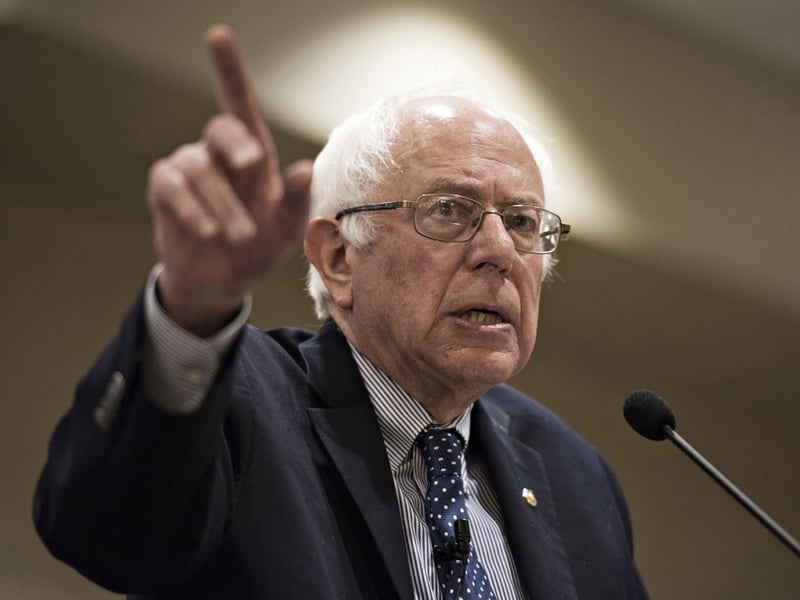Democratic presidential hopeful Bernie Sanders will propose canceling the nation's outstanding $1.6 trillion of student debt and offsetting the cost with a tax on Wall Street transactions.
The Vermont senator will propose legislation Monday that would provide debt relief to 45 million Americans who owe college student loan debts, according to a fact sheet provided by his Senate office. The plan would include a 0.5% tax on stock transactions, a 0.1% tax on bond trades and a .005% tax on derivatives transactions.
(More: Mohamed El-Erian puts Democratic tax proposals in perspective)
The proposal, which comes ahead of this week's Democratic debates, would also provide states $48 billion annually to eliminate undergraduate tuition and fees at public colleges and universities, a long-standing Sanders campaign promise. Democratic House lawmakers including Representatives Ilhan Omar of Minnesota and Pramila Jayapal of Washington — both members of the Democratic Party's progressive wing — will introduce the legislation in their own chamber Monday.
Mr. Sanders has been amplifying his embrace of government-centered solutions to policy problems in advance of the Democratic presidential debates Wednesday and Thursday in Miami. Two groups of 10 contenders will face off in a state that often helps decide the White House contest.
While Mr. Sanders helped popularize proposals for tuition-free college during his unsuccessful nomination fight against former Secretary of State Hillary Clinton in 2016, he focused less on aid for graduates struggling with debts. A few other Democratic contenders, including
Senator Elizabeth Warren of Massachusetts, have put forth proposals to erase past debts.
Mr. Sanders's proposal highlights his appeal to progressives as he battles frontrunner Joe Biden, the former vice president who's taking more centrist stands and pointing to past bipartisan work. Mr. Sanders also is facing challenges from other progressives among the two dozen Democratic contenders, including Ms. Warren, who has been gaining in national and some early primary state polls.
(More: College costs can sink parents, too)
Mr. Sanders embraced "democratic socialism" in a campaign address this month in Washington that took on critics who argue he might become seen as unelectable if he better defines his views. Top Republicans, including Senate Majority Leader Mitch McConnell, have sought to emphasize what they say are "socialist" tendencies of Democratic White House contenders as part of their 2020 campaign strategy.







